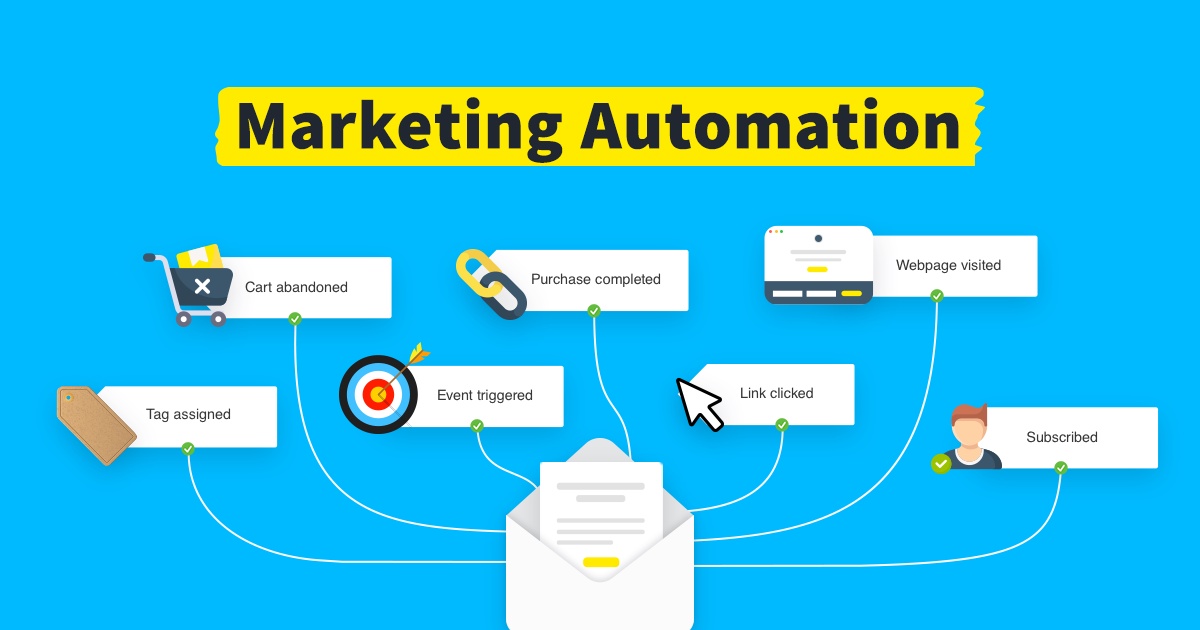In today's fast-paced digital landscape, businesses strive to stay competitive by optimizing their marketing strategies. One such powerful tool transforming the way companies engage with their audience is marketing automation. This comprehensive guide delves into the intricacies of marketing automation, exploring its benefits, implementation strategies, and FAQs.
Understanding Marketing Automation
Marketing automation refers to the use of software platforms and technologies to automate repetitive marketing tasks, streamline workflows, and measure marketing campaigns' performance. By leveraging automation, businesses can effectively target prospects, nurture leads, and enhance customer engagement throughout the buyer's journey.
The Evolution of Marketing Automation
Over the years, marketing automation has evolved significantly, integrating advanced functionalities such as email marketing, social media management, lead scoring, and analytics. Modern automation tools leverage artificial intelligence and machine learning algorithms to deliver personalized experiences, optimize content delivery, and drive conversions.
Key Components of Marketing Automation
1. Data Integration and Segmentation
Efficient marketing automation relies on seamless data integration from various sources, enabling businesses to create comprehensive customer profiles. Segmentation allows marketers to tailor messages based on demographics, behaviors, and preferences, improving targeting accuracy and relevance.
2. Email Marketing Automation
Email remains a cornerstone of marketing strategies, and automation enhances its effectiveness by enabling personalized communication, triggered emails based on user actions, and automated follow-up sequences. This ensures timely engagement and nurtures leads through the sales funnel.
3. Lead Management and Nurturing
Marketing automation facilitates lead management by automating lead capture, scoring, and routing processes. Through lead nurturing workflows, businesses can deliver targeted content and relevant offers, guiding prospects towards conversion while maintaining engagement.
4. Campaign Tracking and Analytics
Comprehensive analytics tools integrated into marketing automation platforms provide valuable insights into campaign performance, audience engagement, and ROI. By tracking key metrics, marketers can optimize campaigns in real-time, identify areas for improvement, and allocate resources effectively.
Benefits of Marketing Automation
1. Increased Efficiency and Productivity
Automating repetitive tasks frees up valuable time and resources, allowing marketing teams to focus on strategic initiatives, creativity, and innovation. By streamlining workflows, businesses can achieve higher productivity levels and accelerate growth.
2. Enhanced Personalization
Marketing automation enables personalized communication at scale, fostering deeper connections with customers and prospects. By delivering relevant content and tailored offers, businesses can address individual needs and preferences, driving engagement and loyalty.
3. Improved Lead Quality and Conversion Rates
By implementing lead scoring algorithms and nurturing workflows, marketing automation helps identify high-value leads and prioritize them for sales engagement. This increases conversion rates and ensures optimal utilization of sales resources.
4. Better Campaign Performance and ROI
With robust analytics and reporting capabilities, marketing automation provides actionable insights into campaign effectiveness and customer behavior. Armed with this data, businesses can optimize campaigns in real-time, allocate budgets efficiently, and maximize ROI.
Implementation Strategies for Marketing Automation
1. Define Clear Objectives and KPIs
Before implementing marketing automation, establish clear goals, objectives, and key performance indicators (KPIs) aligned with your business objectives. This ensures that automation efforts are targeted towards driving measurable outcomes.
2. Invest in User Training and Onboarding
Ensure that your marketing team is adequately trained to leverage automation tools effectively. Provide comprehensive onboarding sessions and ongoing support to maximize adoption and utilization rates.
3. Segment Your Audience Effectively
Segmentation is critical for delivering personalized experiences. Segment your audience based on demographics, behaviors, purchase history, and engagement levels to tailor messaging and offers accordingly.
4. Test and Iterate Continuously
Marketing automation is not a one-time implementation; it requires constant testing, optimization, and iteration. Experiment with different messaging, workflows, and automation rules to refine your approach and drive better results.
Marketing Automation: Empowering Businesses for Success
In conclusion, marketing automation represents a paradigm shift in how businesses approach marketing and customer engagement. By harnessing the power of automation technologies, businesses can streamline processes, boost efficiency, and drive meaningful interactions with their audience. Embrace marketing automation today to stay ahead in the competitive digital landscape.
FAQs
How does marketing automation benefit small businesses? Marketing automation levels the playing field for small businesses by enabling them to automate repetitive tasks, target prospects effectively, and nurture leads through personalized communication, thereby maximizing efficiency and driving growth.
What are some common challenges associated with marketing automation implementation? While marketing automation offers numerous benefits, businesses may encounter challenges such as initial setup complexity, data integration issues, resistance to change, and ensuring alignment between marketing and sales teams.
Is marketing automation suitable for all industries? While marketing automation can benefit businesses across various industries, its suitability depends on factors such as target audience, sales cycle length, and marketing objectives. Industries with complex sales processes and a need for personalized communication often derive the most value from automation.
How can businesses measure the ROI of their marketing automation efforts? Measuring the ROI of marketing automation involves tracking key metrics such as lead conversion rates, customer acquisition costs, customer lifetime value, and revenue attributable to automated campaigns. By analyzing these metrics, businesses can assess the impact of automation on their bottom line.
What role does artificial intelligence play in marketing automation? Artificial intelligence powers advanced capabilities in marketing automation platforms, including predictive analytics, content optimization, behavioral targeting, and chatbots. AI algorithms analyze vast amounts of data to deliver personalized experiences and drive better results.
What are the essential features to look for in a marketing automation platform? When evaluating marketing automation platforms, businesses should consider features such as ease of use, scalability, integration capabilities, lead management functionalities, analytics and reporting tools, and customer support quality.
Conclusion
Marketing automation offers a myriad of benefits for businesses seeking to enhance their marketing effectiveness, streamline workflows, and drive growth. By embracing automation technologies and implementing best practices, businesses can unlock new opportunities for engagement, conversion, and success in the digital age.


No comments yet